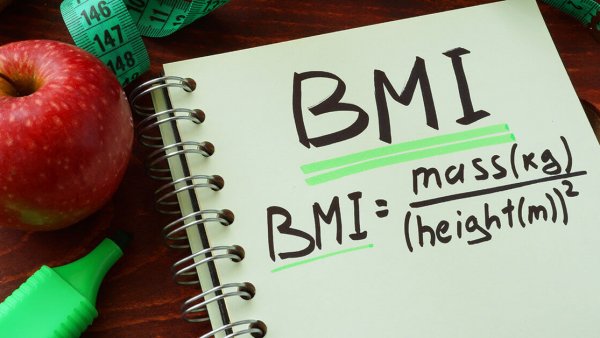I love reading medical journals. I recently came across an article that was curious to me. The Journal of American Medicine recently reported a review that uncovered evidence that being overweight (a BMI of over 25) or obese (a BMI of over 30) increases the risk of at least thirteen types of cancer!
They include cancer of the esophagus, gallbladder, colon, thyroid, breast, uterus, kidneys, stomach, liver, pancreas, and ovaries.
What is Body Mass Index?
The body mass index (BMI) or Quetelet index is a value derived from the mass (weight) and height of an individual. The BMI is defined as the body mass divided by the square of the body height, and is universally expressed in units of kg/m2, resulting from mass in kilograms and height in meters.
The BMI may also be determined using a table or chart which displays BMI as a function of mass and height using contour lines or colors for different BMI categories, and may use two different units of measurement.
Why is BMI used as a marker?
The BMI is an attempt to quantify the amount of tissue mass (muscle, fat, and bone) in an individual, and then categorize that person as underweight, normal weight, overweight, or obese based on that value. Commonly accepted BMI ranges are underweight: under 18.5 kg/m2, normal weight: 18.5 to 25, overweight: 25 to 30, obese: over 30. However, there is some debate about where on the BMI scale the dividing lines between categories should be placed.
People of Asian descent have different associations between BMI, percentage of body fat, and health risks compared to those of European descent, who have a higher risk of type 2 diabetes and cardiovascular disease at BMIs lower than the World Health Organization (WHO) cut-off point for overweight, 25 kg/m2. Although, the cutoff for observed risk varies among different Asian populations.
Additionally, this is not a useful marker for the muscular individual, the tall individual, or one with a high bone density. That means for a large percent of the population BMI is not a good marker.
Know your body composition.
Your body is made up of water, muscles, fat and bones. What and how much you eat, how much activity you get, stress, and even hormone balance affects the composition of your body. It is important to know your lean mass (muscle), fat mass, how your body distributes water (inside and outside of the cells) and your BMR (basal metabolic rate: calories you burn at rest).
Understanding how your body is made up is much more important than the BMI. You can go on a diet and starve off all of your lean mass, normalize your BMI and still be what is called “skinny fat”. You can be thin and still be fat. You can look good on the outside and have a composition on the inside that is near death. We know that it is visceral fat (fat around the middle) that has very harmful health consequences.
Don’t be fooled. Don’t fall prey to the BMI as a marker of health either.
Take ownership of your body.
The healthcare system is NOT going to take care of you and usually does not aid in changing your body composition. Diet drugs and other medications may aid weight loss but do not usually contribute to a healthy body composition.
You do have control with your hand to mouth activities involving food, drink, and exercise. We must become responsible for our own health. There is no one, other than you, to monitor you – 365 days a year and 24 hours a day. YOU must take care of yourself.
For more tips in self care see: How to Get in Shape (and Stay in Shape)
Stop making excuses.
Excuses are like the back end of a pig- they stink and do not get you anywhere. We always have time for what we really want. That being said, if our health is failing, down deep we don’t really care. If we keep up habits that we know are killing us, it is really an attitude of complacency or laziness (you be the judge).
It is an oxymoron to say “ I can’t afford healthy food; it is too expensive”. Most of us need to be eating less anyway. To say “ I don’t have time for exercise” is like saying my HEART health does not matter, and it is okay if my muscles cannot help me get out of the chair (of course we are not thinking of the future).
Let’s stop making excuses. If you are unwilling to take personal action, the only remedy a Physician (such as I) has to offer is drugs or surgery! We are doing the best we can with the societal disease called denial. The responsibility is up to you.
Find the right doctors.
We always find the time to do the things that are really important to us. Take the time to find a practitioner that can perform your body composition analysis and help you understand how to better maximize your health.
At the Functional Medical Institute we are about health from the inside out. Visit us at fmidr.com today and find out how you can better take care of your health and optimize your body composition for the long term!



